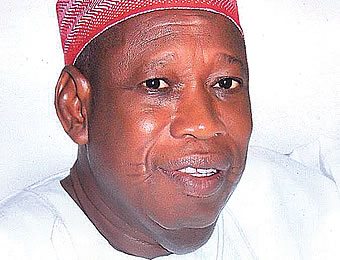In this report, MUHAMMAD SABIU goes down memory lane, tracing the advent of granting of amnesty to criminals in the polity.
For the past one decade, the Northern region has been faced with serious security threats that have shaken it to its foundation. The Boko Haram insurgency in the North-East has destroyed the zone and led to the death of thousands of innocent citizens, while thousands of people were equally displaced by the ‘war.’
The Federal Government has consistently claimed that the ‘war’ has been technically subdued. According to the Minister of Information, Lai Mohammed, in a recent interview, “Boko Haram has been degraded. We have cut off their routes; they no longer get food. They are now hungry to execute any war.”
The minister’s claim was corroborated by the Army spokesman, Colonel Sagir Musa, when he said during a military function in Kaduna recently that “we all know how the insurgents infiltrated most of these states and how they detonated bombs everywhere and people were afraid to even worship or go to markets. But all these are now in the past. Only those who don’t want to know the truth will say the insurgents are still very active.”
However, among the seven states, Zamfara, Katsina, Sokoto and Kaduna are those badly hit by the activities of these bandits.
Findings by Sunday Tribune show that banditry in the zone started in Zamfara State, as far back as 2010. That year, bandits attacked a village in Dansadau emirate of the state and killed over 200 people.
It will be recalled that since then, according to a government statement released in August 2019, an estimated 5,000 people were killed by the bandits, while over 20,000 displaced.
The statement also made the revelation that over 5,000 women, including young girls, were raped; 6,000 people fell victim and a staggering sum of N3 billion was paid as ransom.
Piqued by the activities of the bandits in his state, Governor Bello Matawalle of Zamfara State, immediately he assumed office, resolved to end the menace. The first thing he did was to hold talks with the Fulani leaders and stakeholders to know what was responsible for the incessant killings in the state. Thereafter, he decided to hold talks with the bandits.
Buhari secretly pursuing third term agenda —Falana
Explaining the rationale behind holding talks with the bandits, the governor contended that the various governments in the state had confronted them and this had not yielded any positive results.
According to him, “We decided to adopt a different approach by asking them why are they doing this and at the same time pleading with them to sheath their swords, assuring them that government will not prosecute them.”
The approach, it was learnt, was also to bargain for the release of those in their captivity as well as to name their price.
Investigations further revealed that the peace dialogue paid off, as over 400 people in the custody of the bandits were released. Though there was no official statement over what was paid to the bandits, a source who pleaded for anonymity told Sunday Tribune that a tripartite agreement was reached among the state government, the bandits and the Fulani.
Sources revealed that the state government agreed to the terms given by the bandit including payment of unspecified amount of money. It was also agreed that the bandits would enjoy amnesty when they fulfill all the terms of agreement.
Under the agreement, it was also gathered, the state government will construct three ruga settlements in each of the senatorial zones.
Following in the path of Zamfara State is Katsina State. The bandits’ activities started in the last three years and became pronounced last year.
Disturbed by the trend, the state governor, Aminu Masari, lamented the fact that it was happening in the home of state of the president. In a recent conference with journalists, Masari disclosed that he spent N120 million on security every month and yet, the security situation kept on worsening.
It was on this premise that he decided to engage the bandits and eventually a peace agreement was sealed. As usual, though there was no official statement about what was given to the bandits, sources remarked that the governor negotiated with the bandits and gave them an undisclosed amount of money.
In turn, the bandits asked the state government to release some of their leaders who were in custody of the security agencies. A deal was finally sealed. Masari ordered the immediate release of the bandits, while, in turn, the bandits released some captives to the state government.
Sokoto State, like the two others, followed suit and engaged the bandits who have been terrorising the state in recent times. It was gathered that the engagement led to the discovery of over 200 ammunition from the bandits.
However, the peace deal by the bandits has been a mixed feelings. Though in all the aforementioned states, the peace deal has been successful, as there has not been a single attack since the agreements were sealed, security experts are wary of the deals.
A security expert in Sokoto State, who pleaded for anonymity, remarked that any agreement without the bandits laying down their arms is a temporary thing, saying these bandits still have arms and for that reason, they can carry out attacks any time.
According to him, the disarmament process is very crucial to the peace deal; unfortunately, only few states have started that disarmament process and in low scale.
He also said “you cannot strike a deal with criminals,” noting that “the day you stop giving them money, they will strike.”
However, a journalist, Yakubu Muhammad, advised the governors to improve the living standard of their people by creating jobs for the teeming unemployed youths, saying most of these bandits are jobless youths.








